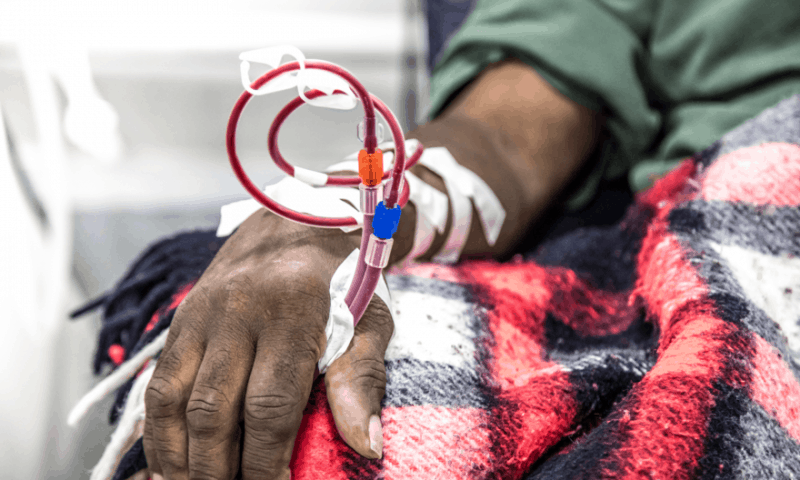The two largest dialysis providers in the U.S. are teaming up to pursue a business proposition that might seem antithetical in nearly any other field or at any other time outside of a worldwide pandemic. They aim to help get patients out of their respective clinics and have them access treatment from inside their own homes.
DaVita Kidney Care will expand its use of home hemodialysis machines supplied by Fresenius Medical Care—including the smaller, portable and digitally connected devices Fresenius picked up in early 2019 through its long-awaited $1.9 billion acquisition deal for NxStage Medical.
The agreement will also grant DaVita patients access to Nx2me Connected Health, a platform that collects and shares individual treatment information with clinics and care teams—while the entire system will allow some to perform hemodialysis solo, or even while the patient and their care partner are asleep.
These remote capabilities can help clinicians identify treatment irregularities and prevent avoidable complications, according to Keith Hartman, group vice president for DaVita’s home modalities division.
“For patients choosing home dialysis, it can mean more freedom and also active participation in their care, which is why we’re always looking for new solutions that ease the burden on our patients,” Hartman said.
DaVita maintains over 2,800 brick-and-mortar dialysis centers in the U.S., while Fresenius’ North America subsidiary owns more than 2,500 on the continent—together accounting for more than 80% of the entire U.S. market.
However, the spread of COVID-19 plus the advent of lockdowns and social-distancing measures have spurred high demand for home care. In 2020, Fresenius said it provided more than 14% of its dialysis treatments in the home setting, with home hemodialysis alone growing by 37%.
Meanwhile, recent changes to Medicare have also worked to accelerate the adoption of home-based therapies. The program expanded payments last November for new home dialysis equipment after finalizing a value-based payment model designed to incentivize at-home therapies over in-clinic treatments.

